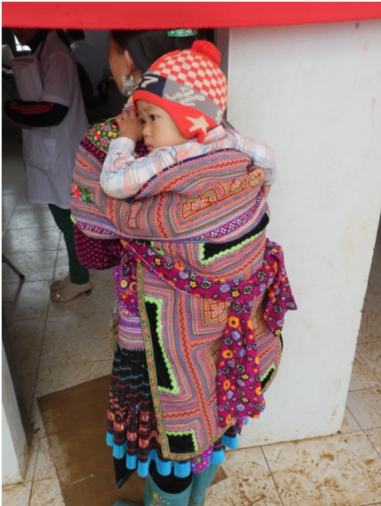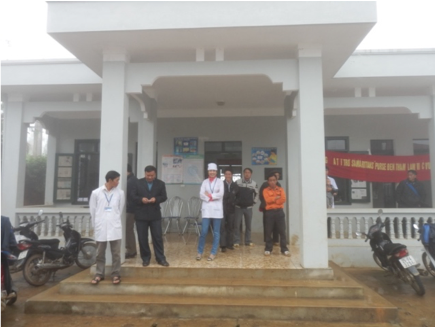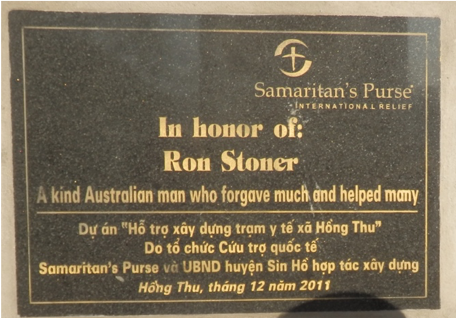|
Perched high on a remote mountain in northern Vietnam is the picturesque village of Hong Thu. The village people are an ethnic minority – hill tribe people dressed in colourful traditional costumes. About 4,000 live in this community and the surrounding mountains, which are steep, rugged and swathed in rainforest and mist. However, until recently, the beautiful scenery and colourful clothing masked some underlying problems. Villagers had to make daily treks down into the valley for water to use for drinking and cooking – sanitation was only a pipe-dream! Houses lacked toilets and children constantly succumbed to gastroenteritis. Childhood malnutrition was also high, resulting in stunted growth. The nearest hospital was at least 2 hours drive away on rough roads and the only medical facility was a tiny dilapidated clinic staffed by a handful of village health workers and overseen by Nurse Ha.
However Nurse Ha had a dream and thanks to Samaritan’s Purse, the Vietnam Government and financial assistance from some Australian Toc H members, this dream has become a reality. A new health clinic, much larger and better equipped than the old one, has been constructed, and 20 village health workers have been trained in eye care. A new water supply is being connected to the village and toilets are being installed in each house. The new health clinic is dedicated to the memory of Ron Stoner (1906-1997), one of the pioneers of Toc H in Australia. Ron was one of a small group of Australians who sailed by ship to England in 1936 for the 21st Birthday of Toc H. He was given the task of introducing the Toc H contingent to King George and they all dined with Queen Mary at Whitehall. When World War II broke out, Ron enlisted and was sent to Malaya, where he was involved in a successful ambush of the Japanese troops but soon after that, Singapore fell and he became a prisoner of war spending time both in Changi Prison and on the Burma Railway. Whilst in Changi, Ron and Padre Duckworth started a branch of Toc H in the prison. One of the Changi Toc H rush lights has been preserved in Christ Church cathedral, Newcastle. While on the Burma Railway, Ron developed a tropical ulcer on his leg. Instead of working on the railway he was put to work in a Japanese field hospital where he was required to butcher the pigs for the officers’ meals. Once a week he was allowed to take the offal to the POW camp, however hidden in the entrails were sulphonamide tablets and other medications pilfered from the Japanese dispensary by a brave Chinese kitchen hand and passed on to Ron. Together with doctors amongst the POWs, these two men probably saved many prisoners’ lives, at great risk to their own. Despite the hardships he suffered, Ron was a forgiving man, not holding a grudge against the Japanese. A committed Christian, he dedicated his life to serving others in the spirit of Toc H. Ron also had a special place in his heart for the people of Malaya and Burma. He saw how much they suffered under the Japanese and had compassion for them. It is fitting that the Hong Thu Medical Clinic is dedicated to his memory. |
Proudly powered by Weebly


